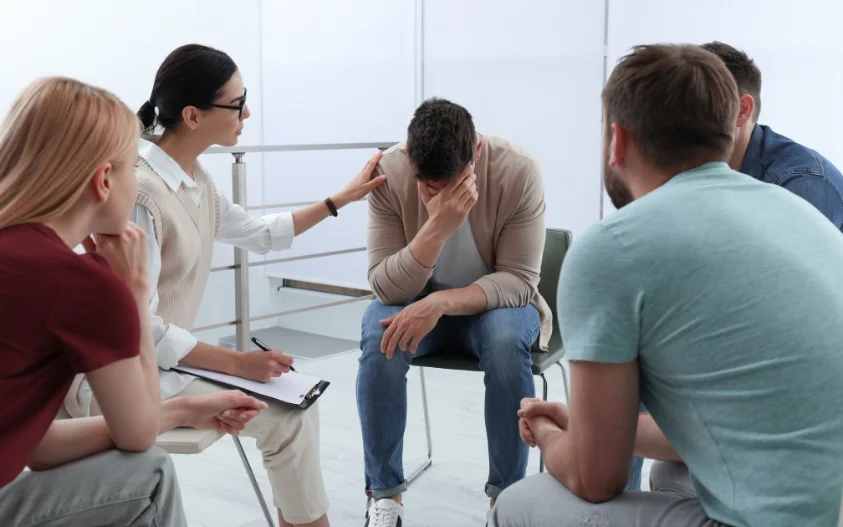24/7 Helpline:
(866) 899-221924/7 Helpline:
(866) 899-2219
Learn more about Bipolar Disorder Treatment centers in Morgan County

Other Insurance Options

Regence

CareFirst

Horizon Healthcare Service

Meritain

BHS | Behavioral Health Systems

Sliding scale payment assistance

Amerigroup

Ambetter

Evernorth

ComPsych

Access to Recovery (ATR) Voucher

Aetna

Health Partners

Molina Healthcare

Choice Care Network

Anthem

Cigna

Magellan Health

WellCare Health Plans

Highmark

Eastridge Health Systems
Eastridge Health Systems is a private rehab located in Berkeley Springs, West Virginia. Eastridge He...













